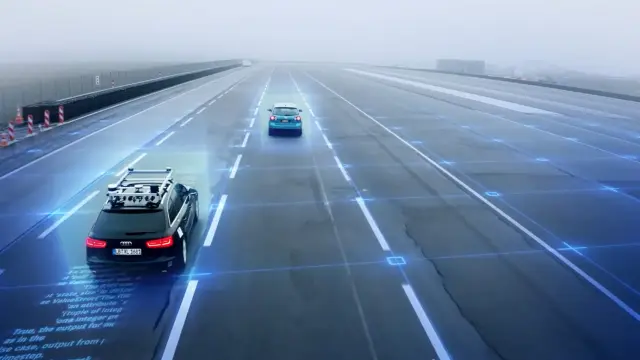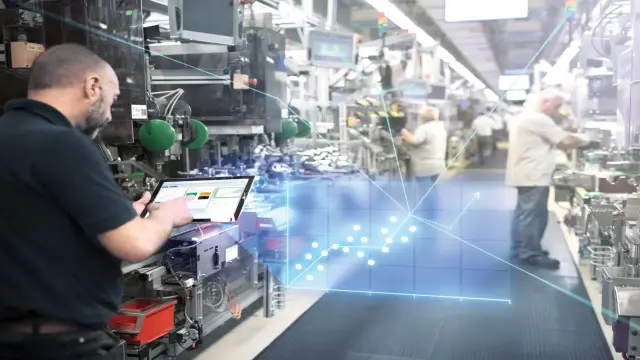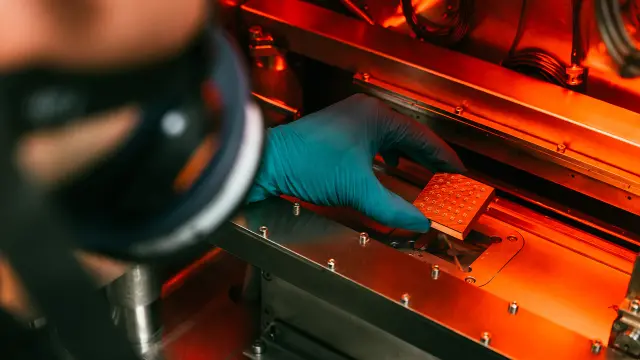Automation for safety, efficiency, and stress reduction
Reliable, safe, and sustainable: Bosch Research's research on automated driving, and factory automation.
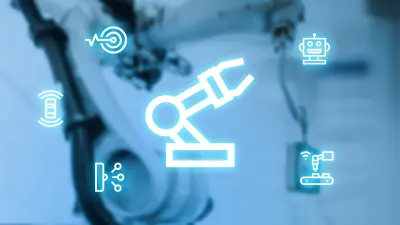
The term “automation” comes from the Greek word “automatos” which roughly means “moving itself”. At Bosch Research, we have made this idea a key part of our research and develop systems which are capable of acting independently.
Based on the data that are fed into them, the autonomous systems that we develop at Bosch learn from us, think, act and react to unforeseen changes in their environment — both changes in routine processes and interactions with people. People and machines work hand in hand here.
When it comes to automation on the road — automated driving — Bosch Research is working on automated "perception" through sensors, object recognition and localization along with algorithms for intelligent driving functions.
Automation for the factory of the future
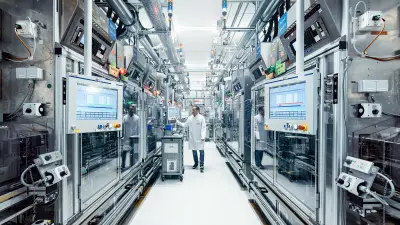
The increasing automation of manufacturing represents major technical and social progress. It allows ever safer, more efficient working processes which have less of an impact on both people and the environment. That is why the automation of production steps and systems through more adaptable machines is a central starting point for research at Bosch Research. The aim is to shape Industry 4.0 so that it can cope with the current and future challenges posed by sustainability requirements, increasingly uncertain supply chains and the dwindling number of skilled workers.
Flexible industrial automation takes into account the gradual digitalization of production and ensures reliable operation as part of a network. The long-standing trend of linking software particularly closely to a single specific piece of hardware is coming to an end, thus paving the way for more flexible automation. In the future, intelligent software in conjunction with highly flexible hardware will allow software-defined manufacturing. This will meet demand for rapidly changeable production lines and supply chain connectivity — enabling a rapid and flexible response to changing product and market requirements as well as fluctuating supply capacities. Through the use of artificial intelligence (AI) in production, production data, processes and results can also be analyzed quickly, thus allowing precise control of production processes.
Algorithms as the basis for automated driving
Automated driving is another important area of research at Bosch Research. Cars of the future will also serve as mobile living and work rooms. In the area of commercial vehicles, automation will allow more efficient transport processes and improved safety. These automated systems are already making logistics processes more efficient, and in the foreseeable future they will fundamentally change the last mile delivery process. Our research into automated driving focuses on continuously improving automated “perception” through sensors, mapping and the localization of objects for intelligent driving functions. These are designed to support and reduce the burden on people when driving or to enable fully automated vehicles to transport people and goods to their destination without any human intervention. We are also developing algorithms which can plan the optimum path (trajectory) for autonomous vehicles — even in complex and unclear scenarios. We are thus making mobility in the future even more efficient, sustainable and climate-friendly.
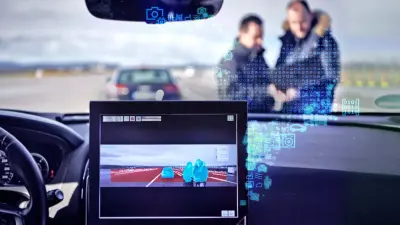
With autonomous cars, the aim is to ensure that they move purposefully and safely in spaces and can interact with their environment. Bosch Research is putting in place the technological basis for application. The goal is to record and understand the environment as fully as possible, for example using camera and LiDAR-based object recognition and algorithms to create three-dimensional maps of the environment. On this basis, autonomous vehicles can then plan and execute safe movements and actions.
“Eyes” and “ears” open for automation

Automation does not work without sensors. They are the hardware basis for ensuring that the right data can be collected at the right time and in appropriate quality and processed by computers. These data allow actuator systems to function and at the same time are the foundations for the use of AI in automation.
If systems are to interact with their environment in a (partially) automated way, they must be able to recognize their environment and users reliably (Sense), process the information they receive (Compute/Think), and translate it into an action (Act). Bosch Research is therefore researching intelligent sensors and technologies for the human-machine interface (HMI). The aim is to solve the aforementioned Sense, Think and Act tasks in an energy-saving, safe, real-time and user-friendly manner.
With innovative sensor solutions, we record the physical environment and transfer this information to the digital, virtual world of the machine. Our activities include MEMS sensors, for example to record acceleration and the slightest movements, and environmental sensors such as cameras, radar or LiDAR. At the same time, we are working on actuator solutions, for example MEMS loudspeakers or ultrasound actuators. Data are processed using classic and, increasingly, AI algorithms. This serves to improve the behavior of automated systems in all product areas. Another focus of our work is the further development of “hardware-software codesign” methods, i.e., tailoring AI algorithms to the available computing hardware in order to minimize the use of space and power consumption. Innovative HMI technologies can be found at the interface to the user. These include solutions for vehicle interiors and the development of novel information systems such as Bosch Smartglasses which use Bosch Light Drive technology to project important information straight onto the human retina.
Automation systems can be used in a very wide range of areas. But the basic technologies behind this far-reaching trend produce synergy effects in real life. Bosch Research is developing the automated products, systems and components of the future as a partner to other Bosch business units and, in many cases, with universities, research institutions and other companies.
Bosch Research Blog

Interested in the latest research topics? In the Bosch Research Blog, our researchers share hands-on information about their work at the detailed level and on a regular basis.
